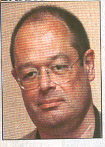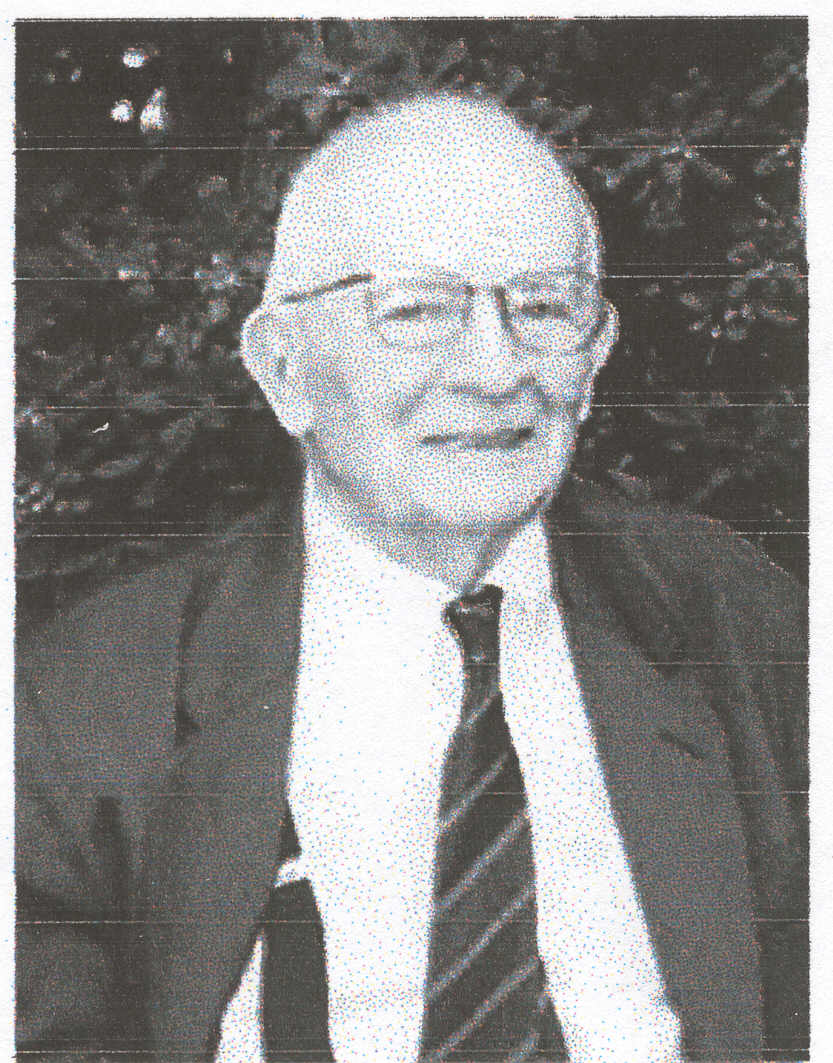 |
Wayne S. Vucinich (1913-2005) - a professor between Herzegovina and California
by Ivo Banac

 The Nestor of Balkan studies in the United States, Wayne S. Vucinich (Vojislav Vučinić), died on Thursday 21 April at Menlo Park in the state of California. He was born in 1913 in the mining town of Butte, Montana, to a family of emigrants from Herzegovina. His father and mother died in the epidemic of Spanish flu which caused devastation towards the end of the First World War. As soon as regular connections with the Old World were re-established, cousins dispatched him, his younger brother Aleksandar and his sister to the parental village of Orah, near Bileće. So young Vučinić spent the most important part of his childhood in Herzegovina, during the last days of the communal family organization about which he would later often write, and at the dawn of the Yugoslav state that would also become a theme of his research. The Nestor of Balkan studies in the United States, Wayne S. Vucinich (Vojislav Vučinić), died on Thursday 21 April at Menlo Park in the state of California. He was born in 1913 in the mining town of Butte, Montana, to a family of emigrants from Herzegovina. His father and mother died in the epidemic of Spanish flu which caused devastation towards the end of the First World War. As soon as regular connections with the Old World were re-established, cousins dispatched him, his younger brother Aleksandar and his sister to the parental village of Orah, near Bileće. So young Vučinić spent the most important part of his childhood in Herzegovina, during the last days of the communal family organization about which he would later often write, and at the dawn of the Yugoslav state that would also become a theme of his research.
At the start of the thirties, when the great depression engulfed Yugoslavia, his guardians decided to send Vojislav back to America, this time to live with a family of relatives in the little town of Long Beach, not far from Los Angeles, in California. The young Vučinić soon showed a range of talents, both in his studies and in sport. He was accepted as a full-time student at the prestigious University of California at Berkeley, where he played American football for the student team. His knowledge of the South Slav lands came to the attention of the historian Robert J, Kerner, a pioneer researcher in the USA into the history of Eastern Europe, who as the son of Czech parents, in 1914 at Harvard, defended the first academic thesis on East European history in North America. Kerner took Vučinić as a postgraduate student, and in 1938 recommended him to pursue doctoral research at the Charles University in Prague.
In an evil hour: Vučinić in that same year had the opportunity of experiencing the Munich crisis, the carve-up of democratic Czechoslovakia at the hands of Hitler’s Reich, and all with the agreement of the Western democracies - Britain and France. He abandoned Prague, turned to the south-east, and in Belgrade collected his brother Aco, who would follow him to Berkeley, then take a doctorate after the war at New York’s Columbia University, to become one of the leading world specialists in the sociology and history of the natural sciences.
Intelligence officer and anti-fascist
After the Japanese attack on the US in December 1941 and America’s entry into the war, the Vučinić brothers, already publicly identified as anti-fascists familiar with the languages and circumstances of south-east Europe, would join the American intelligence service (Office of Strategic Services, OSS), led by Colonel William Donovan. After the capitulation of Italy both would serve as US army officers at Allied HQ in Bari, whence Aco would be sent to Tito’s HQ on Vis, while Vojo - after the Red Army’s entry into Bulgaria and the September rising - would go to Sofia, where he served as liaison officer for the American member of the allied command.
Soon after the war and a short-lived assignment in Washington, Vojislav Vučinić returned to California, where he took his doctorate at Berkeley and soon afterwards began to teach at the University of Stanford, across the San Francisco Bay in the small town of Palo Alto. Stanford at that time was still somewhat of a backwater - a university for wealthy Europhile strata set in idyllic Californian orchards, between the Bay and the Pacific hills. But already in the nineteen fifties Stanford was on the way up, by the sixties becoming the main university centre for natural sciences and technology on the west coast of the United States. Where formerly peaches had been grown, at dizzying speed the facilities sprang up of a new electronics industry linked to the scientists and laboratories of Stanford: Silicon Valley. Firms like Hewlett-Packard would carry the names of Stanford students, pioneers of the new computer age.
This was the environment in which the young Professor Vučinić too worked. Already in 1954 the Stanford University Press published his revised doctoral thesis Serbia Between East and West, a classic study in diplomatic-political history, which analysed the diplomatic revolution in Serbia in the period between the overthrow of the Obrenović dynasty and the Bosnian crisis, and which would be welcomed and highly praised by the doyen of American diplomatic history Bernadotte Schmidt. But the fifties were also a testing time for Vučinić. The golden age of American world leadership was also the time of the cold war and McCarthyism. So Vučinić too, a teacher who was not afraid to recommend the works of Lenin to students interested in the Russian revolution, soon had numerous run-ins with a variety of spiritual guardians and parliamentary committees for ‘un-American activities’. Unlike many American universities, Stanford supported witch-hunt victims. However, for a time Vučinić had his US passport taken away, which prevented him from doing post-doctoral research in Turkey. For Vučinić had wished to research the Ottoman period of Balkan history. He did publish one study in this field (The Ottoman Empire, 1965), but since he was unable to perfect his Ottoman Turkish and carry out archival research in Istanbul his intentions remained unfulfilled.
A researcher in Bileće
Only at the end of the fifties, with changes in American political life, was Vučinić rehabilitated and did he travel once more to Europe, including Yugoslavia. He research work was henceforth directed towards aspects of Russian history (the peasantry in the pre-revolutionary period, the zemstva [district councils], the Moslem peoples of Russian Trans-Caucasia and Central Asia), and towards research into the history of Herzegovina.
Although the Yugoslav authorities had never forgotten the fact that Vučinić had been a wartime member of OSS, they had long since ceased to give him much trouble. In one period in the sixties during the construction of the Grančarevo hydro-electric plant, when an area to the south of Bileće was transformed into a vast artificial lake, Vučinić obtained permission for archaeological excavation of the area before it was flooded. He led a group of his students from Stanford, and a team of Harvard archaeologists, who together with experts from the National Museum in Sarajevo carried out a tremendous job of research and conservation. It was during this period that Vučinić’s old fascination with the Bileće mines was given full rein, leading to the fragmentary and gradual publication of a series of studies on the history of this micro-ethnographic region of eastern Herzegovina. The latest in the series, on transhumance, was printed in a festschrift honouring him, Yugoslavia and its Historians: understanding the Balkan wars of the 1990s, Norman M. Naimark and Holly Case (ed.), Stanford 2003 (recently translated in Zagreb as Jugoslavija i njeni povjesničari, Srednja Europa 2005).
A man of his home region
I got to know Vučinić in the autumn of 1969, when I was a post-graduate student of history at Stanford. He was far more than a supervisor, not just for me but for a whole series of other students, among whom were some exceptionally distinguished names of American historiography, including: Roman Szporluk, professor of Ukrainian studies at Harvard; Vartan Gregorian, former rector of Brown University and now president of the Carnegie Foundation; and Norman Naimark, Vučinić’s successor at Stanford. We called him ‘Uncle Wayne’ [striko Vojo]. Through his farm in the hills south of Stanford trooped everyone in the Western world concerned with the South Slavs, and a procession of notables from the then Yugoslavia.
In his exceptionally discreet and warm fashion Vučinić supervised the procession and taught his students understanding for all our people. It is typical of Vučinić that he was never exclusive, and that he was happy to write either about the Illyrian movement or about the Kosovo myth. His Serb identity [srpstvo] was not in doubt, but always in a Bosnian and wider Yugoslav context. He therefore rejected the siren call of nationalism for war against Bosnia-Herzegovina in 1992-95. Already very old, he followed the destruction of Bosnia-Herzegovina with horror, from his sick-bed, often in the company of his students’ students, who visited him constantly.
This is not the place or the time to draw up a balance-sheet of the generation that came into the world with the Balkan wars of 1912-13. Among the members of that generation, Vučinić’s place was an outstanding one, although insufficiently known to a wider public. With his departure Bosnia-Herzegovina and all South Slavs have lost an extraordinary scholar and a great champion of pluralism. His message is particularly important today in his home region, roughly between Fatnica and Oputna Rudina, between Korita and Dobrićeva.
This obituary has been translated from Dani (Sarajevo), 29 April 2005
|